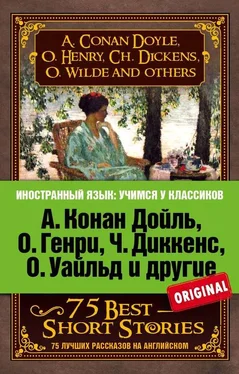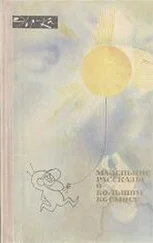‘I don’t really think as I can,’ says she, after considering like.
‘Well, you know your own strength,’ he answers. ‘Perhaps you’re best without it. Speshully if yer not used to ’igh living.’
I was glad to see them finish, ’cause I was beginning to get a bit nervous about the coin, but he paid up right enough, and giv me a ha’penny for myself.
That was the first time I ever waited upon those two, but it wasn’t to be the last by many a long chalk, as you’ll see. He often used to bring her in after that. Who she was and what she was he didn’t know, and she didn’t know, so there was a pair of them. She’d run away from an old woman down Limehouse way, who used to beat her. That was all she could tell him. He got her a lodging with an old woman, who had an attic in the same house where he slept – when it would run to that – taught her to yell ‘Speshul!’ and found a corner for her. There ain’t room for boys and girls in the Mile End Road. They’re either kids down there or they’re grown-ups. ‘Kipper’ and ‘Carrots’ – as we named her – looked upon themselves as sweethearts, though he couldn’t have been more than fifteen, and she barely twelve; and that he was regular gone on her anyone could see with half an eye. Not that he was soft about it – that wasn’t his style. He kept her in order, and she had just to mind, which I guess was a good thing for her, and when she wanted it he’d use his hand on her, and make no bones about it. That’s the way among that class. They up and give the old woman a friendly clump, just as you or me would swear at the missus, or fling a boot-jack at her. They don’t mean anything more.
I left the coffee shop later on for a place in the city, and saw nothing more of them for five years. When I did it was at a restaurant in Oxford Street – one of those amatoor shows run by a lot of women, who know nothing about the business, and spend the whole day gossiping and flirting – ‘love-shops,’ I call ’em. There was a yellow-haired lady manageress who never heard you when you spoke to her, ‘cause she was always trying to hear what some seedy old fool would be whispering to her across the counter. Then there were waitresses, and their notion of waiting was to spend an hour talking to a twopenny cup of coffee, and to look haughty and insulted whenever anybody as really wanted something ventured to ask for it. A frizzle-haired cashier used to make love all day out of her pigeon-hole with the two box-office boys from the Oxford Music Hall, who took it turn and turn about. Sometimes she’d leave off to take a customer’s money, and sometimes she wouldn’t. I’ve been to some rummy places in my time; and a waiter ain’t the blind owl as he’s supposed to be. But never in my life have I seen so much love-making, not all at once, as used to go on in that place. It was a dismal, gloomy sort of hole, and spoony couples seemed to scent it out by instinct, and would spend hours there over a pot of tea and assorted pastry. ‘Idyllic,’ some folks would have thought it: I used to get the fair dismals watching it. There was one girl – a weird-looking creature, with red eyes and long thin hands, that gave you the creeps to look at. She’d come in regular with her young man, a pale-faced nervous sort of chap, at three o’clock every afternoon. Theirs was the funniest love-making I ever saw. She’d pinch him under the table, and run pins into him, and he’d sit with his eyes glued on her as if she’d been a steaming dish of steak and onions and he a starving beggar the other side of the window. A strange story that was – as I came to learn it later on. I’ll tell you that, one day.
I’d been engaged for the ‘heavy work,’ but as the heaviest order I ever heard given there was for a cold ham and chicken, which I had to slip out for to the nearest cook-shop, I must have been chiefly useful from an ornamental point of view.
I’d been there about a fortnight, and was feeling pretty sick of it, when in walked young ‘Kipper.’ I didn’t know him at first, he’d changed so. He was swinging a silver-mounted crutch stick, which was the kind that was fashionable just then, and was dressed in a showy check suit and a white hat. But the thing that struck me most was his gloves. I suppose I hadn’t improved quite so much myself, for he knew me in a moment, and held out his hand.
‘What, ’Enery!’ he says, ‘you’ve moved on, then!’
‘Yes,’ I says, shaking hands with him, ‘and I could move on again from this shop without feeling sad. But you’ve got on a bit?’ I says.
‘So-so,’ he says, ‘I’m a journalist.’
‘Oh,’ I says, ‘what sort?’ for I’d seen a good many of that lot during six months I’d spent at a house in Fleet Street, and their get-up hadn’t sumptuousness about it, so to speak. ‘Kipper’s’ rig-out must have totted up to a tidy little sum. He had a diamond pin in his tie that must have cost somebody fifty quid, if not him.
‘Well,’ he answers, ‘I don’t wind out the confidential advice to old Beaky, and that sort of thing. I do the tips, yer know. “Cap’n Kit,” that’s my name.’
‘What, the Captain Kit?’ I says. O’ course I’d heard of him.
‘Be’old!’ he says.
‘Oh, it’s easy enough,’ he goes on. ‘Some of ’em’s bound to come out right, and when one does, you take it from me, our paper mentions the fact. And when it is a wrong ’un – well, a man can’t always be shouting about himself, can ’e?’
He ordered a cup of coffee. He said he was waiting for someone, and we got to chatting about old times.
‘How’s Carrots?’ I asked.
‘Miss Caroline Trevelyan,’ he answered, ‘is doing well.’
‘Oh,’ I says, ‘you’ve found out her fam’ly name, then?’
‘We’ve found out one or two things about that lidy,’ he replies. ‘D’yer remember ’er dancing?’
‘I have seen her flinging her petticoats about outside the shop, when the copper wasn’t by, if that’s what you mean,’ I says.
‘That’s what I mean,’ he answers. ‘That’s all the rage now, “skirt-dancing” they calls it. She’s a-coming out at the Oxford to-morrow. It’s ’er I’m waiting for. She’s a-coming on, I tell you she is,’ he says.
‘Shouldn’t wonder,’ says I; ‘that was her disposition.’
‘And there’s another thing we’ve found out about ’er,’ he says. He leant over the table, and whispered it, as if he was afraid that anybody else might hear: ‘she’s got a voice.’
‘Yes,’ I says, ‘some women have.’
‘Ah,’ he says, ‘but ’er voice is the sort of voice yer want to listen to.’
‘Oh,’ I says, ‘that’s its speciality, is it?’
‘That’s it, sonny,’ he replies.
She came in a little later. I’d a’ known her anywhere for her eyes, and her red hair, in spite of her being that clean you might have eaten your dinner out of her hand. And as for her clothes! Well, I’ve mixed a good deal with the toffs in my time, and I’ve seen duchesses dressed more showily and maybe more expensively, but her clothes seemed to be just a framework to show her up. She was a beauty, you can take it from me; and it’s not to be wondered that the La-De-Das [325]were round her when they did see her, like flies round an open jam tart.
Before three months were up she was the rage of London – leastways of the music-hall part of it – with her portrait in all the shop windows, and interviews with her in half the newspapers. It seems she was the daughter of an officer who had died in India when she was a baby, and the niece of a bishop somewhere in Australia. He was dead too. There didn’t seem to be any of her ancestry as wasn’t dead, but they had all been swells. She had been educated privately, she had, by a relative; and had early displayed an aptitude for dancing, though her friends at first had much opposed her going upon the stage. There was a lot more of it – you know the sort of thing. Of course, she was a connection of one of our best known judges – they all are – and she merely acted in order to support a grandmother, or an invalid sister, I forget which. A wonderful talent for swallowing, these newspaper chaps has, some of ’em!
Читать дальше
Конец ознакомительного отрывка
Купить книгу












